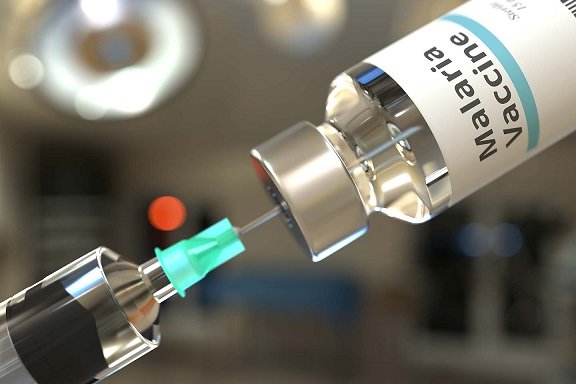Malaria stays a good sized global fitness task, with tens of millions of cases and loads of hundreds of deaths pronounced annually, predominantly in sub-Saharan Africa. The disease, because of Plasmodium parasites and transmitted through the bites of inflamed Anopheles mosquitoes, has been a continual difficulty for hundreds of years. While numerous manage measures which include insecticide-dealt with nets and antimalarial medicinal drugs have notably decreased the disease burden, the improvement and deployment of effective vaccines are crucial for attaining long-term malaria eradication. This article explores the function of vaccines within the combat towards malaria, highlighting latest advancements, demanding situations, and future directions.
Historical Context of Malaria Vaccines:
Efforts to broaden a malaria vaccine date lower back to the mid-20th century, but progress has been gradual due to the complex life cycle of the Plasmodium parasite and its ability to evade the human immune device. Traditional vaccine processes that paintings well for different infectious illnesses have been much less effective towards malaria. Despite those challenges, researchers have made giant strides in recent many years.
Breakthroughs in Malaria Vaccine Development:
One of the most extraordinary breakthroughs in malaria vaccine improvement is the RTS,S/AS01 (Mosquirix) vaccine. Developed by means of GlaxoSmithKline in partnership with the PATH Malaria Vaccine Initiative, Mosquirix is the first malaria vaccine to reap regulatory approval. It goals the Plasmodium falciparum parasite, the deadliest of the malaria parasites, and works through inducing an immune response towards the circumsporozoite protein (CSP) discovered on the floor of the parasite.
In 2019, pilot implementation packages for Mosquirix have been launched in Ghana, Kenya, and Malawi, imparting valuable facts at the vaccine’s effectiveness in actual-global settings. Preliminary outcomes have shown that Mosquirix can reduce malaria cases with the aid of about 30% amongst vaccinated youngsters, a giant reduction in high-transmission regions.
The Mechanism of Malaria Vaccines :
Malaria vaccines aim to trigger the immune gadget to understand and combat the Plasmodium parasite at one-of-a-kind tiers of its life cycle. There are three primary types of malaria vaccines under improvement:
Pre-Erythrocytic Vaccines: These vaccines target the parasite before it enters the bloodstream, generally at some point of the sporozoite level. RTS,S/AS01 falls into this class. By stopping the parasite from infecting liver cells, those vaccines intention to stop the contamination before it may establish itself.
Blood-Stage Vaccines: These vaccines target the parasite at some point of its replication section in crimson blood cells. The aim is to lessen the severity of the disease and save you the transmission of the parasite to mosquitoes, thereby interrupting the transmission cycle.
Transmission-Blocking Vaccines: These vaccines do no longer immediately protect the vaccinated character but goal to reduce the unfold of malaria by means of stopping the parasite from growing within the mosquito. By interrupting the transmission cycle, these vaccines can help lower malaria occurrence inside the network.
Challenges in Malaria Vaccine Development
Developing an powerful malaria vaccine faces several challenges. The complexity of the Plasmodium parasite’s existence cycle, with a couple of tiers and ranging floor proteins, makes it hard for a single vaccine to provide comprehensive safety. Additionally, the parasite’s capability to steer clear of the immune machine and increase resistance to interventions complicates vaccine design.
Another widespread mission is the need for high efficacy. While Mosquirix represents a important development, its efficacy is particularly modest in comparison to vaccines for other diseases. Continued studies is important to increase subsequent-era vaccines with higher and more durable efficacy.
The Future of Malaria Vaccines
The destiny of malaria vaccines looks promising, with several candidates in numerous levels of scientific improvement. One such candidate is the R21/Matrix-M vaccine, evolved by using the University of Oxford and the Serum Institute of India. Early trials have shown that this vaccine has an efficacy of over seventy five%, a vast improvement over current vaccines. If those outcomes are confirmed in larger trials, R21 should emerge as a recreation-changer in malaria prevention and control strategies.
Additionally, improvements in mRNA vaccine era, which proved notably powerful during the COVID-19 pandemic, are being explored for malaria. MRNA vaccines may be hastily evolved and customized, presenting a bendy platform for addressing special tiers of the malaria parasite’s lifestyles cycle.
Conclusion
Vaccines are a important aspect in the international combat towards malaria. While giant development has been made with the development of the RTS,S/AS01 vaccine and other promising candidates, ongoing research and innovation are important to overcome the challenges related to malaria vaccine development. With continued funding and worldwide collaboration, the goal of a fantastically powerful malaria vaccine is within attain, supplying wish for a destiny loose from the scourge of this devastating disease.

